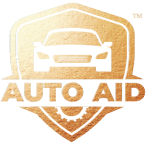Reasons for a Car Breakdown and Ways to Avoid It
Being involved in an unexpected car breakdown can be extremely stressful and uncomfortable. Understanding the common reasons behind Car breakdowns and taking preventive measures can significantly reduce the chances of being stranded on the road. Let’s delve deeper into each common cause of vehicle breakdowns and explore effective prevention methods.
1. Battery Issues
Cause
A dead or faulty battery is a frequent culprit for breakdowns. Batteries can fail due to age, extreme temperatures, or leaving lights and accessories on when the engine is off.
Prevention
Regularly inspect your battery and terminals for corrosion and ensure they are securely connected. Replace old batteries before they fail, especially if you notice slow cranking or dim lights.
2. Flat or Damaged Tyres
Cause
Tyres can become flat or damaged due to punctures, wear and tear, or under-inflation.
Prevention
Check Tyre pressure monthly and before long journeys. Inspect Tyres for signs of wear, bulges, or embedded objects. Always carry a spare Tyre and necessary tools for changing a Tyre.
3. Engine Overheating
Cause
Overheating can occur due to low coolant levels, coolant leaks, a faulty thermostat, or a malfunctioning cooling fan.
Prevention
Regularly check coolant levels and top up as needed with the recommended coolant mixture. Keep an eye on the temperature gauge while driving and pull over immediately if it starts to overheat.
4. Fuel Issues
Cause
Running out of fuel is a common oversight that leads to vehicles being stranded. Using contaminated or poor-quality fuel can also cause engine issues.
Prevention:
Always keep your fuel tank at least a quarter full, especially during long trips. Use reputable fuel stations and avoid using fuel additives without professional advice.
5. Faulty Starter Motor
Cause
The engine may not start due to a damaged or malfunctioning starter motor.
Prevention
Listen for unusual noises when starting your vehicle. Have your starter motor checked during routine servicing and replace it promptly if it shows signs of wear.
6. Alternator Problems
Cause
A failing alternator can lead to a drained battery and electrical failures.
Prevention
Look out for warning signs such as dimming lights or dashboard warning lights. Have the alternator and charging system checked during routine maintenance.
7. Ignition System Failure
Cause
Ignition system failures, including faulty ignition coils, spark plugs, or distributor caps, can cause starting issues.
Prevention
Follow the manufacturer’s recommended maintenance schedule for ignition system components. Address any warning signs such as difficulty starting the engine or rough idling promptly.
8. Broken Fan Belt
Cause
A broken or worn-out fan belt can cause engine overheating and other mechanical failures.
Prevention
Regularly inspect the fan belt for signs of wear, cracking, or looseness. Replace the belt according to the manufacturer’s recommendations to avoid sudden failures.
9. Electrical Issues
Cause
Wiring faults, blown fuses, or electrical shorts can cause various electrical components to malfunction.
Prevention
Avoid DIY electrical repairs if you are not experienced. Consult a qualified technician for any electrical issues to prevent further damage to your vehicle’s electrical system.
10. Brake Problems
Cause
Worn-out brake pads, low brake fluid, or brake system leaks can compromise braking efficiency.
Prevention
Regularly check brake fluid levels and inspect brake pads for wear. Replace brake components as recommended by your vehicle’s manufacturer to ensure optimal braking performance.
Conclusion
Preventing vehicle breakdowns requires proactive maintenance and regular inspections. By understanding these common reasons for breakdowns and taking appropriate preventive measures, you can significantly reduce the risk of being stranded on the road. Remember to schedule routine servicing, address warning signs promptly, and keep emergency supplies in your vehicle for unexpected situations. With these precautions, you can enjoy safer and more reliable journeys.
Taking these steps can significantly reduce the risk of your car breaking down unexpectedly.
FAQs
1. What should I do if my car breakdown?
If your car breaks down, first ensure your safety by pulling over to a safe location, such as the shoulder of the road or a nearby parking lot. Turn on hazard lights and use reflective triangles if available. Contact roadside assistance or a trusted mechanic for help.
2. How can I prevent my car from breaking down?
Regular maintenance is key to preventing breakdowns. Schedule routine servicing, including battery checks, tyre inspections, and fluid top-ups. Keep an eye on warning signs like unusual noises or dashboard lights and address them promptly.
3. What are common signs of a failing battery?
Signs of a failing battery include slow cranking when starting, dimming headlights, and dashboard warning lights. If you notice these signs, have your battery tested and replaced if necessary.
4. What should I do if my car overheats?
If your car starts to overheat, pull over immediately and turn off the engine. Allow the engine to cool down before attempting to check coolant levels. Refill coolant if needed and seek professional assistance if the problem persists.
For Car Breakdown Services, download Auto Aid App and get roadside assistance.

